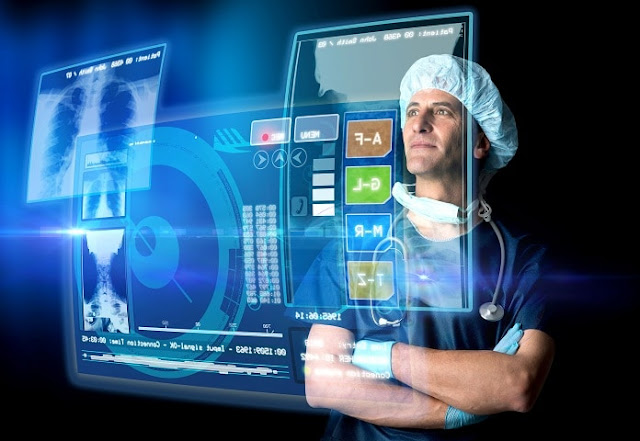Machine Learning Models in the Medical Field: A New Era of Healthcare - Michał Opalski / ai-agile.org
Introduction
The advent of machine learning has transformed numerous industries, but none perhaps as vitally as the medical and healthcare sector. By enabling automated, accurate, and rapid analysis of complex data, machine learning models have increasingly become an integral part of decision-making processes in healthcare. These innovative technologies have the potential to increase efficiency, reduce costs, enhance patient care, and ultimately save lives. This article will explore various machine learning models that can be applied in the medical field and their implications for the future of healthcare.
Machine Learning Models in Medical Diagnostics
Decision Trees and Random Forests: Decision trees are simplistic yet effective machine learning models that are commonly used in medical diagnostics. They work by creating a model that predicts the value of a target variable based on several input variables. Each internal node of the tree corresponds to an attribute, and each leaf node corresponds to a class label. Random forests, an ensemble of decision trees, are utilized to improve the robustness and accuracy of the model. These algorithms have found applications in predicting disease outbreaks, diagnosing illnesses, and identifying high-risk patients.
Neural Networks: Artificial Neural Networks (ANNs) are computing systems inspired by the human brain's structure. ANNs are used for pattern recognition and can handle large amounts of input data, making them ideal for image-based diagnostics. They are extensively used in medical imaging to detect and classify diseases such as cancer, diabetes, and cardiovascular disorders. Convolutional Neural Networks (CNNs), a type of ANN, are particularly effective in analyzing visual imagery.
Support Vector Machines (SVMs): SVMs are supervised learning models used for classification and regression analysis. They are especially suitable for small datasets and have found their place in classifying proteins, predicting disease progression, and genomic data interpretation.
Deep Learning: Deep learning, a subset of machine learning, is designed to mimic the way humans think and learn, offering unprecedented accuracy levels. Deep learning algorithms can analyze high-dimensional data, making them ideal for genetics and genomics. They are also employed in processing medical imaging for disease identification and progression tracking.
Applications of Machine Learning in Predictive Analytics and Personalized Medicine
Logistic Regression: Despite its name, logistic regression is a statistical model used for binary classification rather than regression. It's commonly used in medical fields for disease prediction and patient readmission rates, providing valuable insights that can help with resource allocation and intervention planning.
K-means Clustering: This unsupervised learning algorithm is used to divide a given dataset into 'k' clusters. In medicine, it's used to segment patient populations, identify patterns in disease progression, and personalize treatment plans.
Gaussian Mixture Models (GMMs): GMMs, a probabilistic model for representing normally distributed subpopulations within an overall population, are useful for genetic data analysis. They help in understanding the genetic architecture of complex diseases and traits, aiding the development of personalized medical solutions.
Machine Learning Models in Drug Discovery and Development
Reinforcement Learning (RL): RL is a type of machine learning where an agent learns to make decisions by taking actions in an environment to maximize a reward. RL has been employed in the field of drug discovery to design novel drug molecules and optimize drug dosing schedules.
Graph Convolutional Networks (GCNs): GCNs, a form of neural network, are used to analyze graph-structured data. They are being increasingly used for predicting drug-target interactions, a critical aspect of drug discovery and development.
Conclusion
Machine learning holds immense promise for revolutionizing healthcare. It's not only accelerating disease diagnosis and treatment but also reshaping preventative care and resource allocation. As these technologies continue to advance, and the medical field's data becomes more complex and abundant, machine learning will undoubtedly play a significant role in transforming healthcare into a more efficient, effective, and personalized service.
However, the widespread adoption of machine learning in healthcare does not come without challenges. Issues around data privacy, model interpretability, and the need for large, high-quality datasets for training purposes present considerable hurdles. Despite these challenges, the potential benefits for patient care are driving continuous innovation and integration of these technologies in the medical field.
Looking forward, the marriage of machine learning and medicine has the potential to improve patient outcomes, enhance efficiency, and revolutionize our understanding of complex diseases. As the healthcare industry continues to embrace digital transformation, machine learning models will undoubtedly continue to shape the future of medicine, marking a new era in healthcare.


